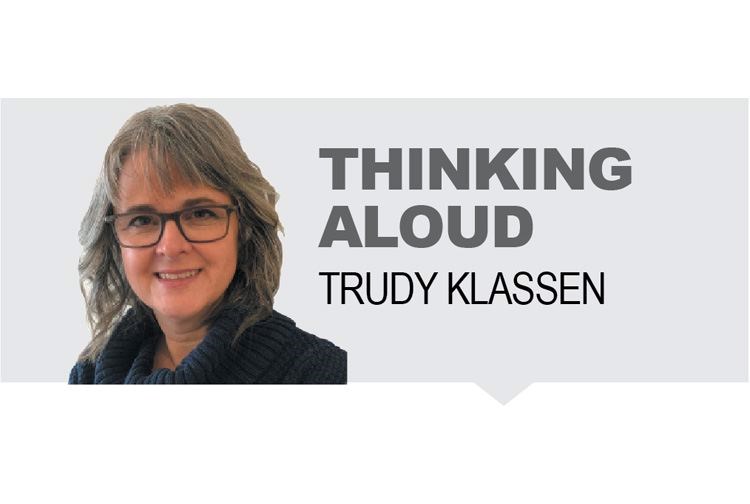On March 11 at 11 p.m., just before I dozed off, my youngest stepped into the bedroom and quoted Theoden from The Two Towers in a voice filled with all the dramatic weight she could muster: “And so it begins.”
COVID-19 had likely made its appearance at her place of work and she was asked to self-isolate for two weeks.
We have entered a world most of us haven’t experienced before. Businesses across the country have closed like dominos, store shelves have inexplicably been emptied as people panic-buy in fear of shortages. Surgeries and other non-emergency procedures have been cancelled. Stepping outside means being struck by a blizzard of our great-granchildren’s money, not just late-spring flurries. A few communities have blockaded their roads trying to keep potential virus-bearing visitors out. Suddenly, we have new heroes: health care workers, grocery store staff and even delivery drivers. A bit of goodwill has even trickled down to truckers. Farmers and ranchers are in, concerts and events are out. Suddenly Zoom is a common word. It’s like a tumble-down world.
What comes next? If the whole COVID-19 thing proves to be nothing but bad science and poor record-keeping, then we need to hold a public inquiry and fire a whole lot of people who should have known but didn’t say anything. The collapse of our economy is on their heads, and the least we can do for them is to find them meaningful work elsewhere, but nowhere near a position of authority.
If COVID-19 either dies out or is stopped by a vaccine, we need to insist on a better pandemic threat reduction plan. We need to implement some sort of regular airport screening that will test for fevers and coughs and significantly reduce the transmission of viruses across international borders. Yes, there will be people who are so determined to travel that they will sneak through regardless, but nothing is 100 per cent.
We need to reconsider whether our dependence on the WHO is warranted, in light of their very poor management of this crisis. We need to consider whether running our hospitals at 102 per cent of capacity is a bad idea. We need to ask why B.C. has the fewest numbers of ventilators per person in Canada, and why Canada has the fewest numbers of ventilators per capita of the developed world. We can also ask for better plans for physical distancing that don’t close parks and swimming pools so that people can survive without becoming zombies. We need to find out why we didn’t do what South Korea and Singapore did. We need to emulate what those free-market, democratic governments did, rather than follow Communist China.
Then, we will have to pay off the massive debt we are accumulating because the printed money flow cannot continue indefinitely. One way Canada could immediately make a difference is by improving productivity, which is behind most G-7 nations. The plastics plant recently despised by some members of our health community may now find new support as we don’t hate disposable products quite so much after all. Perhaps there will be a huge market for masks, protective clothing and equipment, that uses plastic?
We need to think hard about ways to support families struggling with home life so that their kids can be safe at home. The fallout from physical distancing and school closures will be especially hard on those families. Too many of our services are focused on someone else providing help and relief once kids are in danger, when we should be exploring ways to help individuals to help themselves. Improved and more accessible drug addiction rehab and therapy could prevent much of the danger kids face when their parents struggle. This will require a massive re-think in our mental, social service, drug addiction and health care spending priorities.
Necessity is the mother of invention. I have great faith in the average person coming up with innovative solutions for their own situations. Business people do the same thing. New markets will be discovered and products will be improved.
Much like in times of war, it will be individuals, not governments, that will provide the most helpful solutions.I appreciate the work of those in government, and appreciate the hard work of our elected public servants, but in the end, they depend on each of us to think, to chose wisely, and to make a difference where we can, because they can’t be everywhere. And we want to keep it that way.
How this ends depends on what we do with the time given to us.



